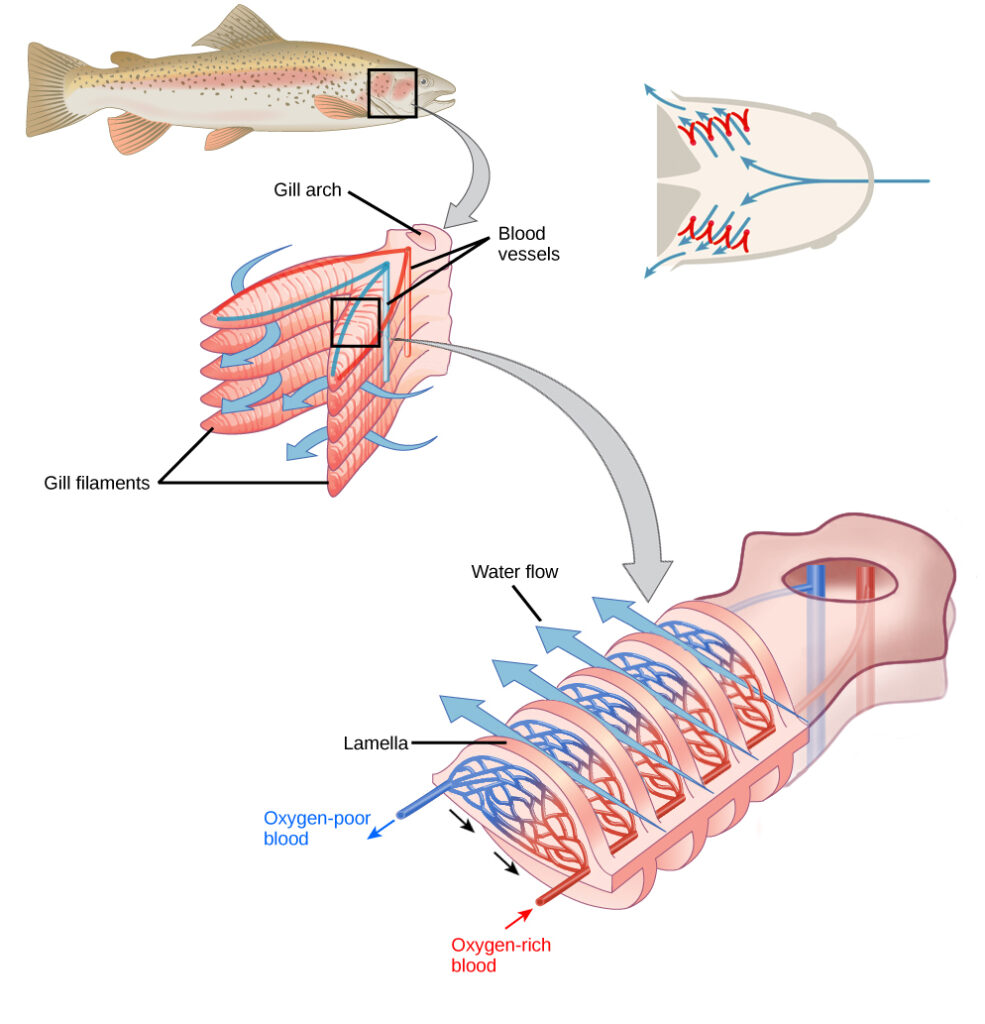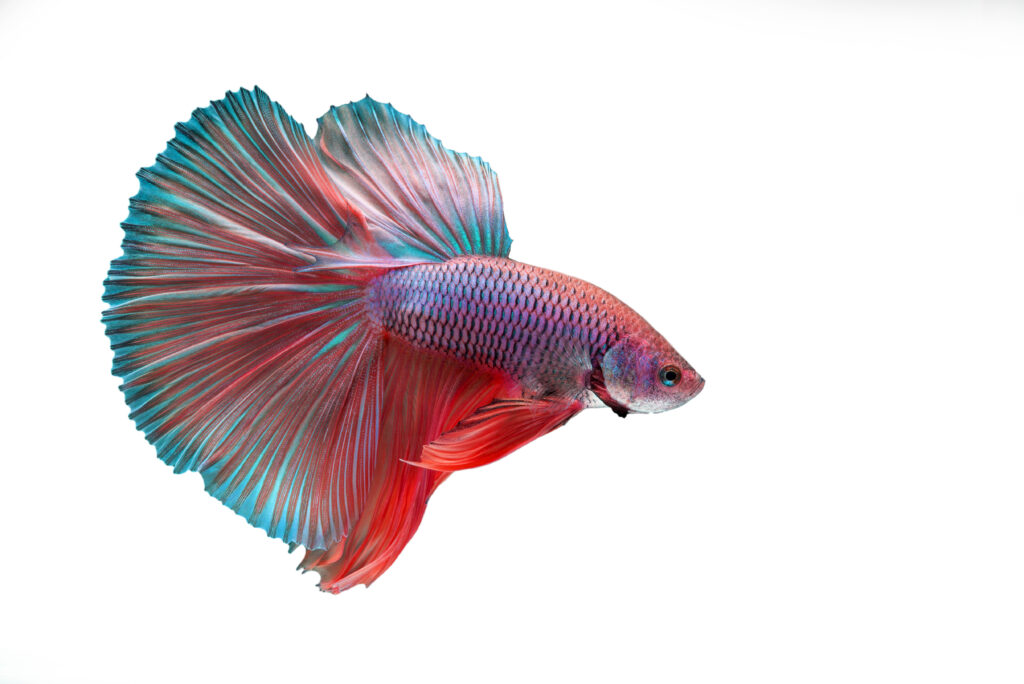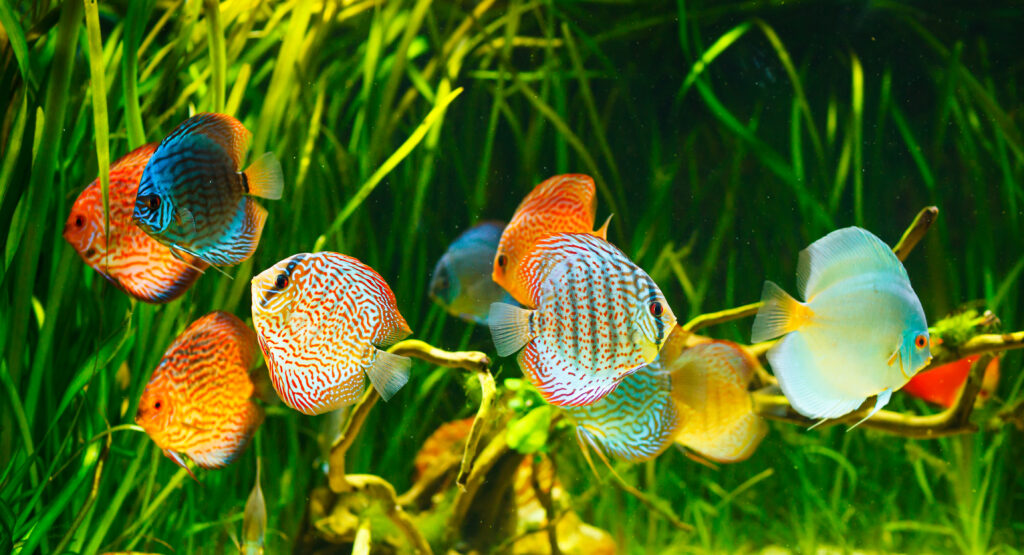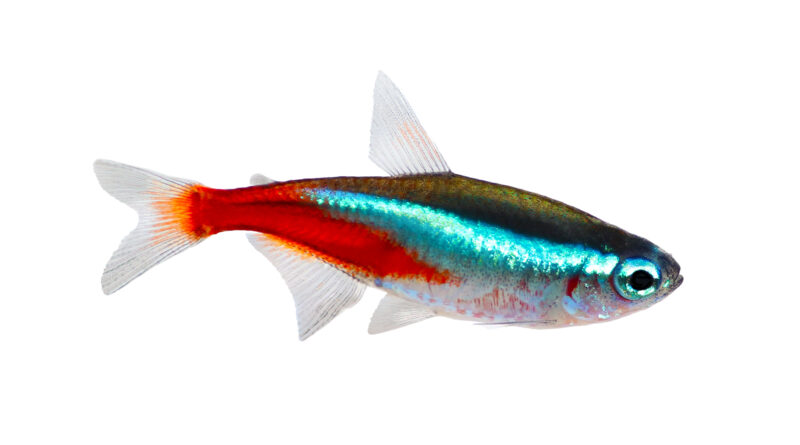Can I keep soft water fish in hard water?
So many text books that say that keeping soft water fish in hard water is better than the reverse, but it will still shorten their lives.
Why? Take a breath in, now let that breath out. You released CO2, CO2 in a liquid, water, your blood, bottle of cola, will form carbonic acid, which makes that liquid more acidic. That mechanism of breathing in and out allows your blood to maintain a level pH, and that means that your cells never have to alter things to keep pumping things in and out of your cells as the pH changes. You can get rid of waste easily, there is no gradient for your body to fight against.
But fish are surrounded by water not air, and that acid-base level that we can maintain by breathing, isn’t as straight forward for them.
For the most we’ll be looking at the function of the gills here, as that’s enough complications for a Monday morning. But a fun aside here, air-breathing fish regulate their blood pH differently to water-breathing fish.

In general fish control their blood pH by exchanging H+, and HCO3 ions with the surrounding environment. Their gills and kidneys are the main two controlling factors for this. For soft water fish they also excrete Ammonium as a part of this process.
This leads us to the first issue, at higher pH the excretion of ammonia drops, and the removal of CO2 increases. This is because in a more appropriate rang the NH3 is removed from the bloodstream, and becomes NH4 due to H+ ions in the water, at extremes that are no H+ ions, so the concentration of NH3 builds up outside the fish, and no gradient is created to allow the ammonia to leave the fish.
On top of this the exchange of salts from outside the gills reduces, and the salt in the blood starts to drop.
Now that’s been shown experimentally at the extreme ends, but biology tends to show these things on a scale. So no this isn’t going to happen immediately, and the fish has ways to cope, specifically by accumulating other ions in the muscles and organs to help offset these changes. This is fine if your local river or lake gets a bit more alkaline because an algae bloom has stripped all the CO2 from the water. But not if you’ve been put in a tank where the pH is going to be too high for the rest of your life, however short that might be.

Softwater fish have two main adaptations, they have a high affinity to uptake calcium, and they utilise the CO2 in their water to protect against low pH. In alkaline waters there is excess Calcium and a lot less CO2. This can lead to loss of some gill function, uptake of excess Calcium, and above all a fish that isn’t as healthy as it could be.
The final one is one that I think should be considered just as much. In general soft water fish have evolved in a tannin rich low pH environment, and so has their immune systems. There are a number of diseases that thrive in harder waters, that these fish have no immunity or defences against. A classic example is hole in the head disease and Rams. Just a few months in harder water and these little guys will be showing all the symptoms, and it tends to be treatment resistant whilst they’re in hard water. Do other species of cichlid that live in harder waters also get HITH? Yes, but not in the same numbers as Rams in water that’s too hard for them.
If there were only soft water fish in the hobby, and you had no way to reduce the hardness of your water I would have some sympathy. But I live in a hard water area. I have two tanks that I reduce the hardness in, via RO water, and the rest I just enjoy the huge number of hard water fish that are available. You get to choose what fish you take home from the shop. At least give them the correct water to survive in. If I reduced the amount of CO2 you could get out of your body you’d suffer from respiratory acidosis. You’d feel short of breath, be exhausted, have headaches, be confused, you’d probably sweat a lot, not be able to sleep properly, your memory would be shot, and you’d have trouble walking properly. But you wouldn’t die immediately, in fact you’d probably get a few years before the organ failure, seizures, kidney damage etc killed you. Does that make it okay?

Further Reading
Bucking, C., Wood, C. M., The alkaline tide and ammonia excretion after voluntary feeding in freshwater rainbow trout. J Exp Biol 1 August 2008; 211 (15): 2533–2541. doi: https://doi.org/10.1242/jeb.015610
Cameron, James N.,1978 Regulation of blood pH in teleost fish, Respiration Physiology, Volume 33, Issue 1, 1978, Pages 129-144, ISSN 0034-5687, https://doi.org/10.1016/0034-5687(78)90092-0. (https://www.sciencedirect.com/science/article/pii/0034568778900920)
Claiborne, James & Edwards, Susan & Morrison-Shetlar, Alison. (2002). Acid-Base Regulation in Fishes: cellular and Molecular Mechanisms. The Journal of experimental zoology. 293. 302-19. 10.1002/jez.10125.
Gilmour, K.M., Perry, S. F. Carbonic anhydrase and acid–base regulation in fish. J Exp Biol 1 June 2009; 212 (11): 1647–1661. doi: https://doi.org/10.1242/jeb.029181
Nikinmaa, M. (1986). Control of red cell pH in teleost fishes. Annales Zoologici Fennici, 23(2), 223–235. http://www.jstor.org/stable/23736132
Wilkie, M. P., Wood, C. M., 1996 The adaptations of fish to extremely alkaline environments, Comparative Biochemistry and Physiology Part B: Biochemistry and Molecular Biology, Volume 113, Issue 4, 1996, Pages 665-673, ISSN 1096-4959, https://doi.org/10.1016/0305-0491(95)02092-6. (https://www.sciencedirect.com/science/article/pii/0305049195020926)

